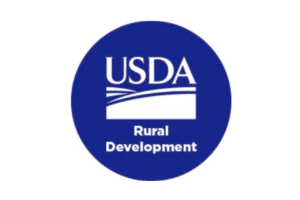The Housing Opportunity Through Modernization Act of 2016 (H.R. 3700) passed the Senate on July 14th and is now expected to be signed into law by The President. The “common sense” legislation received a unanimous vote in both the House and Senate. For more information on H.R. 3700, see below.
June 28, 2016 — The Senate appears to be following the House’s lead on legislation that would reform project-based rental assistance. On June 22, 2016, the Senate Banking, Housing, and Urban Affairs Subcommittee on Housing, Transportation, and Community Development introduced the Housing Opportunity Through Modernization Act of 2016 (S. 3083). The bill serves as companion legislation to H.R. 3700 (see prior story below). Rep. Blaine Luetkemeyer (R-MO), the sponsor of the original House legislation, thanked his fellow Missourian, Senator Roy Blunt, for introducing the bill on the Senate side, hoping that “the upper chamber will follow the House’s lead and unanimously support taking the first step to changing our nation’s housing policies.”
Unanimous passage in the House and now introduction in the Senate indicate a bright future for the bill. That said, many of the provisions within the bill have been widely supported by Congress for almost a decade, but those proposals were never enacted.
Feb. 3, 2016 — A bill is making its way through Congress that would impact public housing and project based rental assistance developments. The Housing Opportunity Through Modernization Act of 2015 (H.R. 3700) would amend the United States Housing Act of 1937 to strengthen the project based rental assistance program, reduce the burden of public housing and PBRA unit inspections, and change the way tenant incomes are calculated, reviewed, and addressed.
The bill would allow public housing authorities (PHA) more leeway to use put their voucher authority toward project based vouchers, instead of tenant based vouchers, and allow more units in a property to be designated for project-based vouchers. The bill also increases the length of the voucher commitment from 15 years to 20 years.
In order to get families into homes more quickly, the bill streamlines the inspection process. Residents can move into a unit as long as it was inspected in the previous 24 months by a federal standard that is as or more strict than the Housing Quality Standards, though the unit would still need to be inspected by the housing agency under voucher program rules. If the unit does not pass inspection to due non-life threatening issues, the voucher holder could still move in as long as the issues are corrected within 30 days. This means that agencies could make initial payments to owners even if the unit does not initially pass inspection.
The bill streamlines the rules used to determine resident rents. For resident households whose income has exceeded 120% of the area’s median income for two consecutive years, PHAs would be required to charge a monthly rent equal to the costs of operating and capital subsidies provided for that unit, or terminate the family’s tenancy. The bill simplifies, and increases, the deductions tenants can make to their income based on factors like child care or a disability.
Rep. Blaine Luetkemeyer (R-MO) introduced the bill in October 2015. It passed in the House on February 2 and will continue to the Senate for consideration.
According to the Center on Budget and Policy Priorities, the Congressional Budget Office estimates that H.R. 3700 would reduce program costs by $311 million over five years, with $195 million of that reduction stemming from the bill’s rental assistance provisions.



